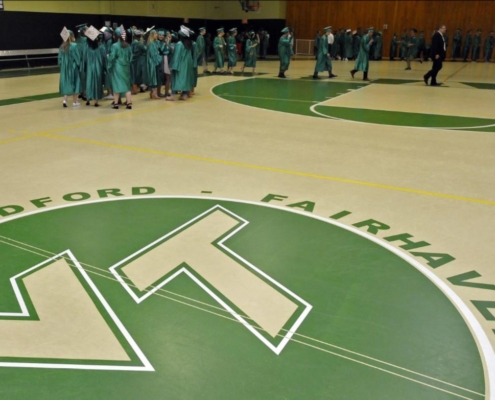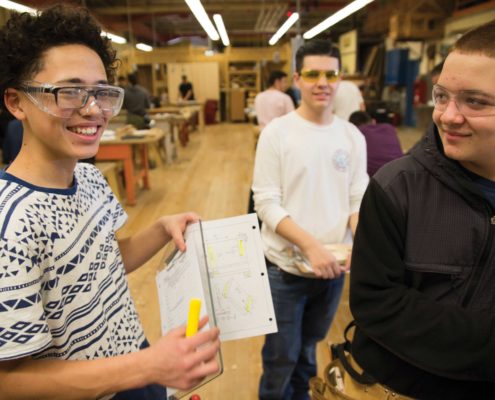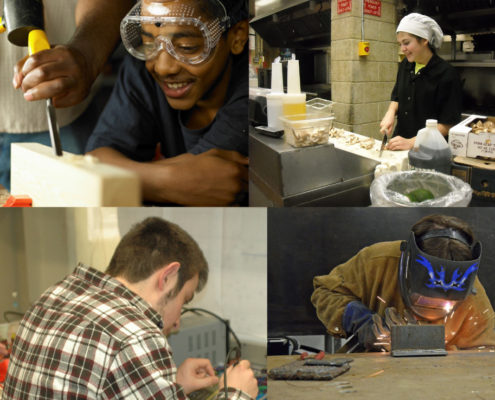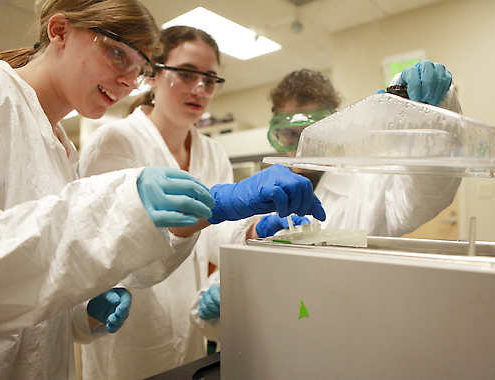Toolkit Highlights Keys to Massachusetts’s Vocational-Technical School Success
BOSTON (September 7, 2022) — Alternating weeks of academic and vocational education, school autonomy, and close ties with local businesses have been key to the success of Massachusetts’s vocational-technical high schools, according to a report published today by Pioneer Institute.
“Thanks to foresighted policies, Massachusetts’s vocational-technical schools are the best in the country,” said Pioneer Institute Director of School Reform Jamie Gass. “Employers believe that voc-tech graduates are more job-ready than other high school graduates — and even some college grads.”
The new report — “Replicating the Massachusetts Model of Vocational-Technical Education” — is a toolkit that can empower state leaders to transform their vocational-technical schools for the better. It builds on “Hands-On Achievement,” a book detailing the Massachusetts model that Pioneer published earlier this year.
Two decades ago, vocational-technical leaders realized their schools needed to match the academic rigor of traditional high schools to help students succeed in increasingly sophisticated fields. Voc-tech students are now required to pass the same standardized tests as other high school graduates.
A weekly alternating schedule gives students hands-on experience alongside traditional academic classes. “Voc-tech students spend half their time on academics,” said David Ferreira, a former voc-tech school leader and past president of the Massachusetts Association of Vocational Administrators. “The hands-on portion of their education reinforces what they learn in the classroom.”
Each of Massachusetts’s 26 regional vocational-technical schools has its own school committee, administrators and budgets. That gives the schools flexibility to respond to changing student needs.
Each school and career program also relies on a committee of local business leaders who gauge equipment needs, review curriculum, and oversee co-op programs that employ juniors and seniors.
These reforms have paid off. Between 2001 and 2007, the performance of regional vocational-technical and county agricultural schools in Massachusetts improved more than any other subgroup. By 2008, the passage rate on standardized English and math tests for voc-tech students was 96%, compared with 94% for all students.
The report includes two additional policy suggestions. First, states should not use a lottery system to make voc-tech admissions decisions but should instead allow schools to consider middle school students’ behavior or attendance records.
Certain tracks of study, like welding, require attentive students. When schools have greater autonomy in the admissions process, the most motivated and interested students are able to learn together. Horseplay or inattention around dangerous equipment can put students at risk.
Second, administrators should be given the opportunity to inform eighth graders about local voc-tech high schools and the opportunities they offer.
“Voc-tech schools are great places for students of all different interests and backgrounds,” Ferreira says. “Maintaining strong admissions policies allows motivated students to learn together in a positive environment.”
###
For more information or to schedule interviews with the authors or editors of the book, please contact Lizzie Nealon at (202) 996-0051 or lizzie@keybridge.biz.
About Pioneer Institute
Pioneer Institute is a think tank dedicated to developing ideas that advance prosperity and a vibrant civic life in Massachusetts and beyond. The organization produces research almost exclusively through outside experts to ensure credibility, and acts as a resource for legislators on Beacon Hill and for staff in the State’s executive offices.
Help us expand voc-tech education
Related Posts:











